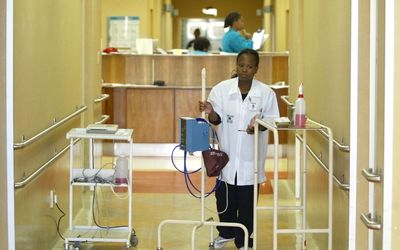PROVINCIAL health departments do not assess the quality of care provided to patients at private hospitals, despite wielding the power to withdraw their operating licences, it emerged yesterday at the Competition Commission’s health market inquiry.
The inquiry, now in its fourth week of public hearings, is investigating pricing and constraints to competition, and access in the private healthcare sector.
On Tuesday, it turned its attention to how provincial health departments award private hospital licences; the oversight they exercise over these facilities; and the extent to which they use their licensing powers to influence behaviour.
Provincial health departments license all new private hospitals — as well as extensions to existing facilities. "We don’t do a detailed quality of care assessment in private hospitals," conceded the Western Cape health department’s chief director, Krish Vallabhjee.
Nursing quality and staffing ratios were not included in the department’s inspections of private hospitals that focused on infrastructure, said pharmacy services director Kim Lowernherz.
The inquiry had heard complaints from doctors and nurses that the quality of nursing in private hospitals has declined.
Asked by panellist Sharon Fonn whether the Western Cape health department had considered withdrawing licences from private hospitals that hired healthcare professionals, such as nurses who were moonlighting from their jobs in the public sector, Dr Vallabhjee said: "We have not used the licensing approach to penalise private hospitals. It would be quite a harsh decision to close those facilities down. It is our responsibility to better manage our staff."
Dr Vallabhjee said the department had not considered using the threat of licence withdrawal as a way of influencing private hospitals’ behaviour. He told the inquiry that there were 265 private health establishments in the Western Cape, with 6,198 beds.
Another 2,251 beds were licensed but had yet to be commissioned, he said. Private beds constituted 35% of the total in the Cape Metro, and 25% of the total beds in rural districts, Dr Vallabhjee said.
The Gauteng health department said it could provide only one example of a private hospital that it had closed down because of quality concerns. It did not name the facility.
Its acting head of department, Brian Seloane, told the panel the department did not make information about the outcomes of its inspections public, nor did it gauge the financial viability of the businesses seeking licences.
Dr Seloane said there was an oversupply of private hospitals in Gauteng, but conceded his department was responsible for awarding the operating licences for these facilities.
The median bed occupancy rate for private hospitals in Gauteng had been just 65% in 2014, Dr Seloane told the inquiry.
He said that demand for hospital services was driven by providers, but admitted he had no research or evidence to back this up.






















Change: 0.40%
Change: 0.47%
Change: -0.49%
Change: 0.53%
Change: 1.03%
Data supplied by Profile Data
Change: 1.71%
Change: 1.28%
Change: 0.40%
Change: 0.00%
Change: 1.64%
Data supplied by Profile Data
Change: -1.27%
Change: 0.00%
Change: 0.05%
Change: -0.08%
Change: 0.35%
Data supplied by Profile Data
Change: -0.02%
Change: 0.21%
Change: -0.06%
Change: 0.53%
Change: 0.70%
Data supplied by Profile Data